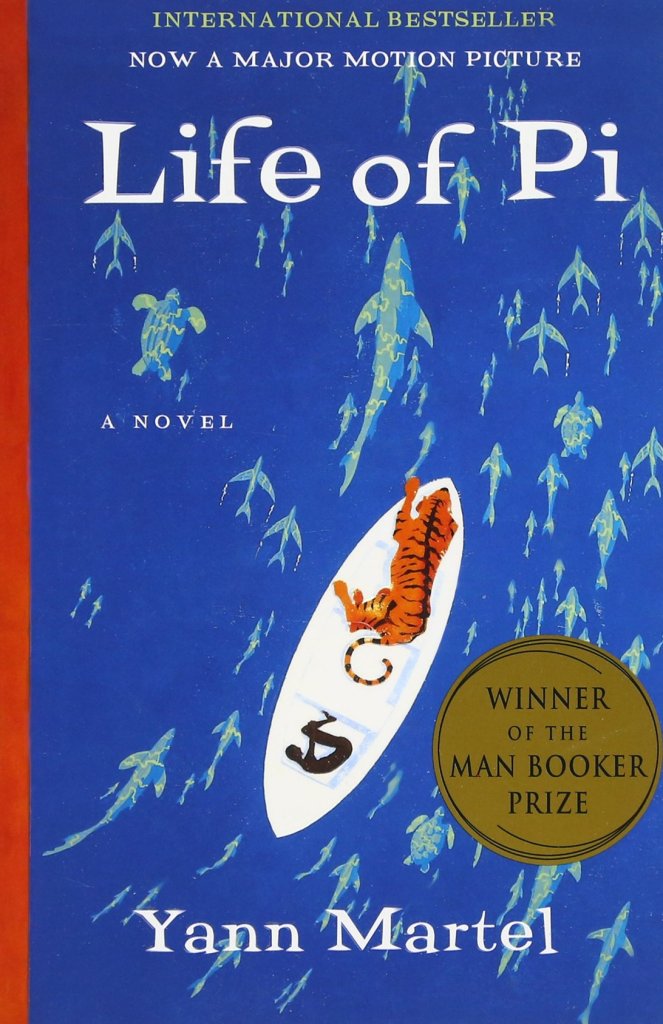
I remember coming across this fantastic little book one day while on my lunch break, reading the culture section of the Sunday Times and coming across a review of the said book by Margaret Atwood.
There are moments in time when you feel that you absolutely need a book. It’s a rare feeling but this desire to read Life of Pi surged through me and I went to the rival bookstore (as I knew they were more efficient in ordering books than the company I was working for) and within a week and half I was carting the book around with a grin on my face.
I started the book on the bus ride home, continued it when I arrived and sat on my chair reading it and flipping each page, letting the whole story devour me – like a tiger and feeling elated.
By 23:00 I finished the book a happy man and an even happier one 5 months later when I found out that it won The Booker.
Life of Pi functions as story within a story a story, which heightens it’s appeal. Anyway it’s about about an Indian boy, named Pi Patel who’s family own a zoo and decide to emigrate to Canada due to India’s political instability. The Patels manage to sell the whole zoo but they have to ship the animals with them. Unfortunately the boat capsizes and Pi is trapped on a lifeboat with a tiger, zebra , hyena and Orangutan.
At first he is terrified but then he makes peace with the Tiger, named Richard Parker and the rest of the book is about Pi’s adventures. Strange islands, strange people. Martel has clearly made this a first class adventure book, albeit with many weird moments.
When Pi is eventually rescued the journalists who interview him tell him to re-tell his story as it is too fantastic, which Pi does as well but the journalists prefer the story with the tiger in it.
I found this section to be the clincher as it does play around with the idea of the fine line between madness and truth. Obviously the only one who knows what really happened is Pi himself and it is up to us as readers to just accept the main tale for what it is.
Despite the digressions into Theology, Philosophy and Zoology, Life of Pi is a grand story in every sense of the word. It is essentially a tale to tell everyone and anyone and in fact this is how the book starts out. A tale can be muddled as time passes by so neither Pi or the man relating this story to the author are wholly reliable. Neither is the media for that matter. Like all stories though, there is an entertainment value. Something to make you want to hear it constantly and treasure. This is what I feel is the true meaning of fiction and is lacking in so many books as it is reality that most authors are focusing upon. This is also why Life of Pi is a towering achievement, it harks back to the days when our parents would sit at the end of our beds and relate an engrossing tale from the top of our heads. Life of Pi is an embodiment of that bygone era.
I remember a scene in Ray Bradbury’s Fahrenheit 451 when Guy is upset that he has spent his whole career burning books as a living and stumbles across people who recreate these books from memory, despite the fact that there may be inaccuracies. I feel that if ever Life of Pi was destroyed it has the power to be recreated again as, I have mentioned before, it sums up the art of storytelling to the maximum.